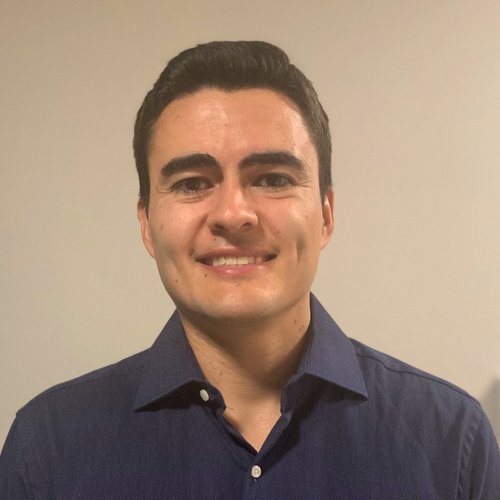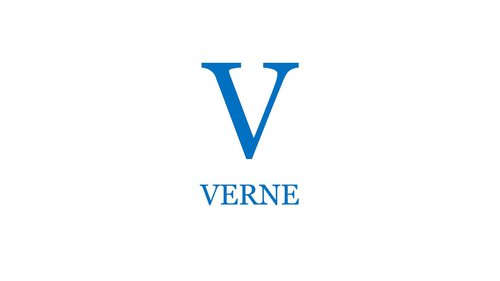David Jaramillo Ph.D. ’21, Verne
David is Co-founder & CTO at Verne, developing hydrogen storage solutions for zero-emissions transportation.

What did you carry from your Berkeley experience to your work in innovation/entrepreneurship?
My experience as a Berkeley chemistry Ph.D. student helped foster and strengthen foundational habits and skills for my career in innovation and entrepreneurship. By default, pushing the frontier in science involves moving from failure to failure with a positive and learning mindset. Day in and day out you are forced to extract as much knowledge as possible from your failures so you can more effectively progress to the next synthetic step, physical characterization, or computational explanation. My experience taught me to stay consistent, committed, and to always be learning. This is difficult to do alone. What makes Berkeley unique is the environment: being surrounded by incredibly passionate and hardworking individuals makes this non-linear journey of failure and discovery possible, enjoyable, and fulfilling. Furthermore, during my Berkeley experience, and within my research group, I learned about how to better connect basic science to commercial application. Discussing the metrics that matter for a given application, and then working backwards to the corresponding basic science metrics, was a common type of conversation graduate students would have.
What advice would you offer students just beginning their careers in the startup world, either as founders or as early team members?
In the early days, every single task that needs to get done in a startup seems mission-critical. Sometimes there is an urge and momentum to blindly get the next task checked off. However, at a certain point, it will be overall beneficial to slow down so that the company can speed up: take a step back and determine what the foundational systems are that need to exist in the company so that accomplishing these tasks is a more streamlined and natural effort. These systems will largely revolve around how the company makes decisions and how to effectively allocate resources to the most important missions.
What’s the hardest thing about your work in a growing company? What keeps you up at night?
A growing company means that change is a constant. The systems you set in place when there are three employees will be dramatically different than the system you will need to implement when there are ten employees, and so on. As a leader in the company, you need to consistently re-evaluate foundational and practical aspects of company functions. By default, you always feel slightly on the edge. With this context of continual change, you need to ensure the company is aligned across technology, team, market, and finances. Typically, some of these aspects will progress faster while others will slow. Realizing this and course-correcting frequently is difficult. Accepting that a given aspect of the company will lag behind others for a certain amount of time is challenging.
How did you bounce back from your early failures and use those experiences to fuel your later successes?

You have to be comfortable with self-inquiry and putting the company needs ahead of any individual’s feelings. The first step is to do a thoughtful post-mortem on what failed. Having honest and constructive conversation with company leaders can be difficult amid a failure but it should be prioritized. During these conversations, the goal is to identify the root cause of the failure at the company level. Secondly, the appropriate system should be proposed that would make it highly improbable that such a failure would occur again. Lastly, the team must move forward with conviction and even more confidence. The team can view this as net-positive, as they have now further de-risked a company shortcoming and are better suited for growth than before the failure.
As an entrepreneur, you’re told to push through barriers and face down rejection. How do you know when it’s time to pivot, or to sunset a project you’re working on?
This type of decision will almost always be driven by conviction and not consensus. It is difficult to project probabilities and make an obvious decision when it comes to a pivot in an inherently ambiguous and ill-defined environment. The best framework to have is a scientific one: present the scenarios as hypotheses and stress test them as much as possible. Given that high-quality data is generally difficult to obtain for these topics, it is helpful to assign a “Red Team” to argue for the painful answer. This can help shock the standard way of thinking for individuals that have invested their time and efforts into a specific company development pathway.
What’s your (or your company’s) biggest challenge or hurdle at your current stage?
Verne is developing high-density, low-cost hydrogen storage and refueling products for heavy-duty transportation, starting with Class 8 trucks. Verne’s technology will accelerate the transition from diesel to zero-emission fleet operations. For a hydrogen hardware company like Verne to succeed, a network of hydrogen companies is needed: from hydrogen fuel providers, hydrogen valve makers, to fuel cell maintenance providers. No single company can do this alone. Each of these players will be essential to accelerate the critical infrastructure required to scale.
What’s the most exciting opportunity at this stage?
The largest shift in the heavy-duty transportation industry has started. This transition is an environmental imperative with massive economic opportunities. Nearly every major fleet operator and heavy-duty OEM, from trucking, to shipping, and aviation, has a hydrogen fleet strategy. By the end of this transition, we will need as much hydrogen as we produce globally today, 90 million tonnes per year, just for the transportation sector. Today, we use about 20,000 tonnes per year for hydrogen transportation. This anticipated 4,500x growth will necessitate a hydrogen economy unlike anything we have today. The generational energy companies of tomorrow are just taking their first steps.
Lastly: You’ve chosen to make the Berkeley Founders’ Pledge. What inspired you to do that?
I’m grateful for the opportunities that Berkeley has given me during my Ph.D. program. I’ve met many inspiring individuals and have learned lessons and habits that I will carry with me for the rest of my life. It’s only appropriate that I give back to help pave the way for the next incoming students. Furthermore, we are a critical point in time for society’s wellbeing. Climate change is one of a handful of existential crises. In order to address challenges of this magnitude and importance, we necessarily need innovation and technical innovators. By making the Berkeley Founder’s Pledge, I wish to streamline the student-to-founder pathway and help encourage technical students to tackle big problems.
Interested in joining David in his commitment to Cal? Make the Berkeley Founders Pledge, like he did, and have an impact from Day One of your latest venture.